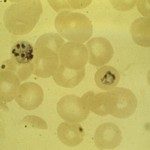Link to Pubmed [PMID] – 20580214
Link to HAL – pasteur-00509640
Link to DOI – 10.1016/j.coi.2010.06.002
Current Opinion in Immunology, 2010, epub ahead of print. ⟨10.1016/j.coi.2010.06.002⟩
To metazoans, bacteria are more than just potential pathogens. Many examples now document the role of bacterial symbionts in complementing the host for its full development and increasing its digestive and protective functions. Here, we discuss the role of Gram-negative bacteria in the development of intestinal lymphoid tissues and the impact of Segmented Filamentous Bacteria and Bacteroides on intestinal immunity and homeostasis. Furthermore, we discuss the potentially beneficial role of Helicobacter pylori on immunity of the stomach and beyond, even though this bacteria is primarily known for its pathogenicity. Altogether, these and other symbiotic bacteria may manipulate the host and the host immune system through the shedding of MAMPs that cross not only the epithelial barriers, but also permeate the circulation and impact every tissue and function of the host.





